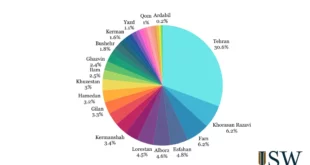AGADIR (Reuters) — A deal endorsed by EU ministers last week for Spanish and Portuguese trawlers to fish in Morocco’s Atlantic coastal waters has fuelled anger in Agadir, Morocco’s main fishing port.
Fishing is a key sector for Morocco’s economy and society, accounting for around 12 per cent of exports, employing some 70,000 people and representing about 3 per cent of gross domestic product.
The four-year agreement allows 119 EU boats, 100 of them Spanish, to extract up to 60,000 tonnes of fish in Moroccan territorial waters, in exchange for compensation of 144 million euros ($184.5 million). Hundreds of fishermen gathered this week near their boats in Agadir Port, 602km south of Rabat, to protest about a lack of work, stringent national fishing quotas and the EU deal.
They said the accord will worsen their financial situation as they expect it will lower yields of important species such as sardines and octopus and force them to travel further and consume more fuel.
“Already we are only allowed to work for four months of the year,” said 41-year-old fisherman Abdelmajid Amourri. “And there is no compensation from the government — when we don’t work, we get nothing.” “We don’t have enough to feed our families. I’ve been living on credit for 16 years.”
The Moroccan government has hailed the deal as a model of partnership and a stimulus to consolidating strong ties with its rich northern neighbour. Agriculture Minister Mohand Laensar said the volume of fishing authorised for EU boats under the deal is only a quarter of that in the accord that expired in 1999, which covered all of Morocco’s coastline including the Mediterranean.
He said there would be strict control of their catches using air, land and satellite monitoring.
The four-year accord was supposed to be applied in March.
It was delayed by fierce opposition from several countries, especially Sweden, over trawling in waters off the disputed Western Sahara.
The Western Saharan independence movement Polisario has called the EU fisheries accord illegal and Sweden said the territory’s sovereign status still needed clarifying.
“We don’t understand why Morocco made this deal,” said Moroccan seamen’s union leader Abderrahmane Alyazidi.Â
 Eurasia Press & News
Eurasia Press & News


